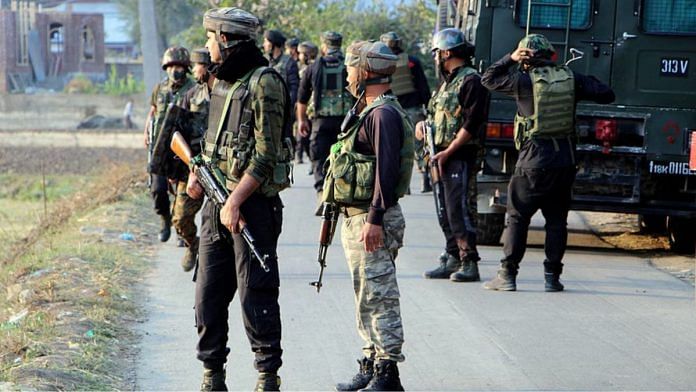We read with great interest the timely essay by Lt Gen Prakash Menon (retired) on the recent allegations of custodial torture against Army personnel in Kashmir and the need to ensure justice in the death of three civilians.
Any law-abiding citizen of a democracy would stand shoulder to shoulder with General Menon in demanding a fair inquiry. But there are a few jarring notes in the article that turn the concept of criminal justice, including military justice, on its head.
In his article, General Menon disagrees with an earlier op-ed in which we, the authors of this article, argued for an independent prosecution in military justice, one that would not be connected with the chain of command. General Menon goes on to explain that there is a clear need for “judges” to have “professional insight into the operational environment.” He adds that the “judgement” of such actions is better taken by “commanders”.
This misconceives our position. First, he has treated the prosecution and the judges as a single entity, when these are two completely different things, like chalk and cheese. He further wants Commanders to be judges. All of this is wide of the mark, and is unfathomable in any democracy, including India, which embraces the precious concepts of ‘rule of law’ and ‘separation of powers’. In any case, the members of the court martial in India already are serving military officers.
Also read: Poonch incident should encourage military justice review. Bring one law for three Services
Independent prosecution too
While the independence of judges is well understood and echoed in constitutions of democracies and emphasised in the Universal Declaration of Human Rights (1948) and the International Covenant on Civil and Political Rights (1966), the need for independence of the prosecution is also well recognised, including by judgments of the Supreme Court of India and the Havana Statement at the 8th United Nations Congress on the Prevention of Crime and the Treatment of Offenders (1990). In fact, the independence of the prosecution, the defence and the bench is the hallmark of any functioning democracy. Commanders cannot be the judges (or even prosecutors) of their own causes. Calling for such an arrangement would go against the very grain of the General’s article: justice.
Law, justice and judicial functioning don’t just require great experience and exposure, since they pertain to precious rights, including life and liberty, of individuals, but also need a detached and dispassionate approach, much learning and unlearning, including of personal opinions and experiences.
General Menon rightly praises the reforms initiated by former defence minister Manohar Parrikar, but his reform measures were based on Chapter 5 of the report of a committee of experts of which one of us (Navdeep Singh) was a member. And those military justice reforms underscore the independence of the military justice system, both prosecution as well as the bench, and hence, are the polar opposite of what the author proposes in his op-ed.
Also read: Why did court martial verdict fall apart in Amshipora ‘encounter’ case? This was avoidable
Caution is necessary
The political executive has made the right noises in bringing justice to the incident in question, and their assurances, and those of the top military hierarchy, are welcome and reassuring. When dealing with military justice, bringing to book any such alleged perpetrators of serious crime and ensuring that nobody is let off lightly for a dastardly offence is extremely important.
But paradoxically, it is equally important to ensure that personnel are not meted out excessive punishments or encumbered with trumped-up charges to prove a point or to somehow “make an example.” The judicial system, therefore, is supposed to tread very gingerly, and hence it is imperative to ensure not only independence but also legal qualification of the key players in military justice. The oft-repeated warning that “justice must not only be done, but must also be seen to be done,” as famously observed by Gordon Hewart, is again worth bearing in mind.
To reiterate, we agree with the theme and the sentiment of General Menon’s article, but cannot embrace his dismissive view on the need for independence in legal and judicial processes.
Eugene R Fidell is President Emeritus of the National Institute of Military Justice. A graduate of the Harvard Law School, he teaches at the Yale Law School. He is also the former Chair of the Committee on Military Justice of the International Society for Military Law and the Law of War and Member of the Advisory Committee on Military Justice of the Commonwealth Secretariat.
Navdeep Singh is a practising lawyer at the Punjab & Haryana High Court and a former member of the Committee of Experts constituted by the Government to reduce litigation in the Defence Ministry and reform the system of Redressal of Grievances. He is also a Member of the International Society for Military Law and the Law of War, International Fellow at the National Institute of Military Justice and Member of the Advisory Committee on Military Justice of the Commonwealth Secretariat.
Views are personal.
(Edited by Prashant)



